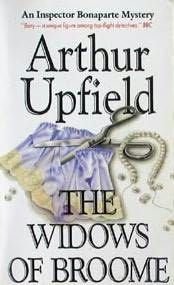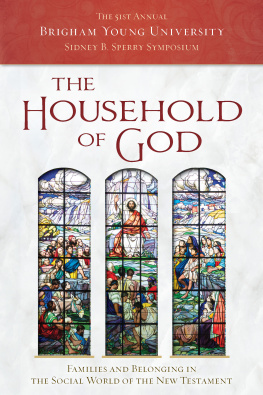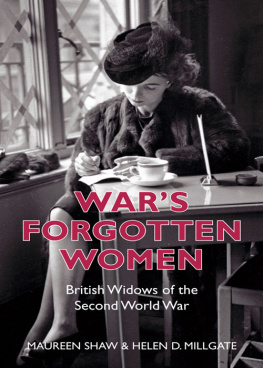First published in 1958
Reprinted in 2004 by
Routledge
2 Park Square, Milton Park, Abingdon, Oxon, OX14 4RN
Transferred to Digital Printing 2006
Routledge is an imprint of the Taylor & Francis Group
1958 Institute of Community Studies
All rights reserved. No part of this book may be reprinted or reproduced or utilized in any form or by any electronic, mechanical, or other means, now known or hereafter invented, including photocopying and recording, or in any information storage or retrieval system, without permission in writing from the publishers.
The publishers have made every effort to contact authors/copyright holders of the works reprinted in Routledge Library Editions Anthropology and Ethnography. This has not been possible in every case, however, and we would welcome correspondence from those individuals/companies we have been unable to trace.
These reprints are taken from original copies of each book. In many cases the condition of these originals is not perfect. The publisher has gone to great lengths to ensure the quality of these reprints, but wishes to point out that certain characteristics of the original copies will, of necessity, be apparent in reprints thereof.
British Library Cataloguing in Publication Data
A CIP catalogue record for this book is available from the British Library
Widows and their Families
ISBN 978-0-415-32996-5
ISBN 978-1-136-53192-7 (ePub)
Miniset: Africa
Series: Routledge Library Editions Anthropology and Ethnography
Printed and bound by CPI Antony Rowe, Eastbourne

First published in 1958
by Routledge & Kegan Paul Ltd.
Broadway House,
6874 Carter Lane,
London E.C.4
Copyright 1958 by the Institute of Community Studies
By John Bowlby
With the publication of this book, the Institute of Community Studies completes a Bethnal Green trilogy. Each volume reports the findings of an empirical study of family life: the first through the eyes of middle-aged husbands and wives, the second through those of the aged, and this one through the eyes of widows.
In our present Western civilization to be widowed is to be twice-stricken: both grief and poverty are the widows lot. A satisfactory study requires therefore an understanding both of the emotional and the economic implications of widowhood, and of their interaction with each other. It requires also an ability to look at suffering dispassionately and without flinching. It seems probable that one reason for the neglect of the problem is the rarity of investigators with this combination of gifts.
Grief is no respecter of persons. Whether the bereaved is young or old, rich or poor, to lose another with whom his feelings are closely linked is to suffer emotional disruption. Not only is the external pattern of his life abruptly changed, but he finds himself at the mercy of conflicting impulses of great intensityto remember, to forget; to blame, to forgive; to seek companionship, to avoid company. No wonder this is an experience which can endanger physical and mental health, both in the short-term and the long. For the psychiatrist and the psycho-analyst the problem is to understand the nature of the processes set in train by bereavement, and the conditions which assist these processes to reach a healthy outcome or which hinder it; since without such understanding neither therapeutic nor preventive measures will be well-based. Hitherto, however, there have been too few empirical studies, and this contribution will be warmly welcomed.
But central as grief and mourning are to the student of mental health, they are experiences which are of concern also to all members of a community. Disliked as painful, they are too often dismissed as irrational. As a result our culture provides but poor guides for the conduct of mourning, either for the bereaved or for his relatives and friends. Let us hope that a deeper understanding of the import of bereavement will point the way to customs which will provide both clearer guidance to friends and more effective support for the bereaved.










